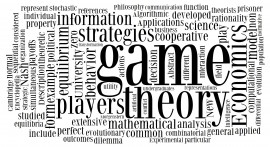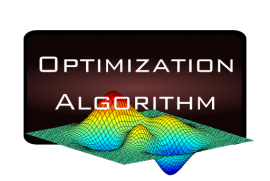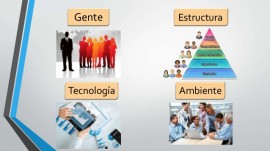- Fecha(s): 17/11/2017
- Lugar: Sala de Seminarios (Edificio Torretamarit), Universidad Miguel Hernández (Campus de Elche) . Se emitirá en directo o se grabará.
- Ponente: Fernando Bernstein (Fuqua School of Business, Duke University, USA)

Abstract We consider an online retailer facing heterogeneous customers with initially unknown product preferences. Customers are characterized by a diverse set of demographic and transactional attributes. The retailer can personalize the customers’ assortment offerings based on available profile information to maximize cumulative revenue. To that end, the retailer must estimate customer preferences by observing transaction…
- Fecha(s): 18/07/2017
- Lugar: Sala de Seminarios (Edificio Torretamarit), Universidad Miguel Hernández (Campus de Elche) . Se grabará.
- Ponente: Gloria Fiestras Janeiro, Universidad de Vigo

Abstract Los juegos TU como funciones de particiones son estructuras apropiadas para modelizar las ganancias/costes de una coalición teniendo en cuenta como se organizan el resto de los jugadores. En esta charla revisaremos algunos valores propuestos en la literatura, centrándonos en sus propiedades. En particular, revisaremos el valor de Myerson (Myerson 1977), el valor de…
- Fecha(s): 11/04/2017
- Lugar: Sala Seminarios (Edificio Torretamarit), Universidad MIguel Hernández de Elche. Se grabará.
- Ponente: El-Ghazali Talbi (University of Lille 1).

Abstract During the last years, interest on hybrid metaheuristics has risen considerably in the field of optimization and machine learning. The best results found for many optimization problems in science and industry are obtained by hybrid optimization algorithms. Combinations of optimization tools such as metaheuristics, mathematical programming, constraint programming and machine learning, have provided very…
- Fecha(s): 06/04/2017
- Lugar: Sala de seminarios, Edificio Torretamarit, Universidad Miguel Hernández (Campus de Elche). Se grabará.
- Ponente: José Manuel Giménez-Gómez (Universitat Rovira i Virgili)

Abstract An effective climate agreement is urgently required, yet conflict between parties prevails over cooperation. Thanks to advances in science it is now possible to quantify the global carbon budget, the amount of available cumulative CO2 emissions before crossing the 2oC threshold (Meinshausen et al., 2009). Countries carbon claims, however, exceed this. Historically such situations have been tackled…
- Fecha(s): 16/02/2017
- Lugar: Seminario del Departamento de Métodos Cuantitativos para la Economía y Empresa, UMU. Retransmisión en directo.
- Ponente: Guiomar Martín-Herrán. Universidad de Valladolid.

Abstract: Despite the fact that the use of sporadic advertising schedules is well established in both the advertising literature and market place, the marketing channel literature that focuses on vertical interactions has consistently prescribed continuous advertising strategies over time. This paper investigates, in a bilateral monopoly context a situation in which a manufacturer and a…
- Fecha(s): 29/11/2016
- Lugar: Sala de seminarios, Edificio Torretamarit, Universidad Miguel Hernández (Campus de Elche). No se retransmitirá en directo. Se grabará.
- Ponente: Coralio Ballester

Abstract: En este trabajo analizamos un conjunto de «concursos de belleza» («Beauty Contests»- Nagel, AER 1995) jugados en el contexto de redes económicas/sociales. Los Beauty Contests han sido utilizados en campos como las finanzas y en el estudio de la racionalidad limitada de los agentes económicos. En concreto, fue uno de los primeros juegos en…
- Fecha(s): 04/10/2016
- Lugar: Sala de seminarios, Edificio Torretamarit, Universidad Miguel Hernández (Campus de Elche). Se grabará.
- Ponente: Carmen Beviá. Universidad de Alicante

Abstract: The paper focus on the dynamics of organizations and how they design its future according to the interest of their members. Agents are grouped into three classes, high, medium and low productivity. We analyze the evolution of organizations which take decisions by majority voting. We focus on the evolution of the political power and…
- Fecha(s): 02/11/2015
- Lugar: Sala de Seminarios, Edificio Torretamarit, UMH. No se retransmitirá en directo, pero se grabará.
- Ponente: Vito Fragnelli, Università del Piemonte Orientale

Abstract Several power indices were introduced in order to account for different aspects of decisional situations. The talk presents how to deal with those situations, commonly arising in politics, in which the agents have some incompatibilities. Some comments on existing power indices and how communication structures and restricted games may allow a better evaluation of…
- Fecha(s): 08/06/2015
- Lugar: Sala Seminarios, CIO, Edificio Torretamarit, Universidad Miguel Hernández de Elche. No se podrá retransmitir en directo. Los interesados que puedan hacerlo deberán acudir a la UMH.
- Ponente: Nizar Allouch, Queen Mary, University of London

Abstract This paper studies the interbank liquidity game where banks are located on a network and may access their direct neighbors’ liquidity holdings. We investigate patterns and directions of welfare-improving transfers in arbitrary networks. More specifically, we use a geometric approach to characterise two general cases – where the welfare improvement is accompanied by a…
- Fecha(s): 12/09/2014
- Lugar: Seminario Mtnez Gallur, Facultad de Economía y Empresa Campus de Espinardo, Murcia. RETRANSMISIÓN EN DIRECTO.
- Ponente: Luís Corchón, Universidad Carlos III de Madrid

Abstract In this paper we analyze a two period contest in which agents may become bankrupt at the end of the first period. A bankrupt agent is excluded from the contest in the second period of the game. We investigate the existence of a subgame perfect equilibrium in pure strategies. We distinguish between a borrowing…











